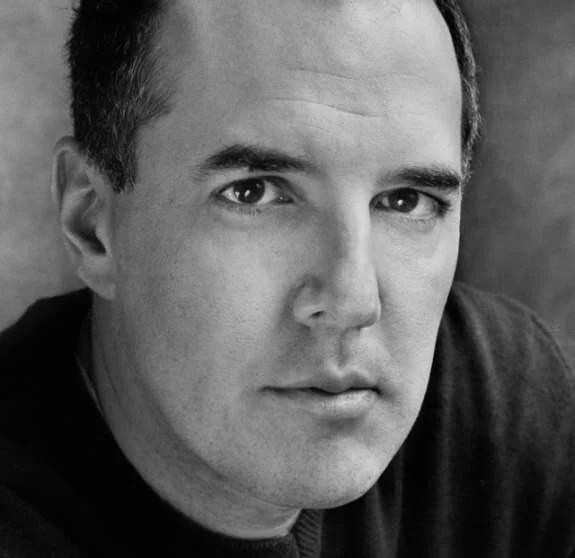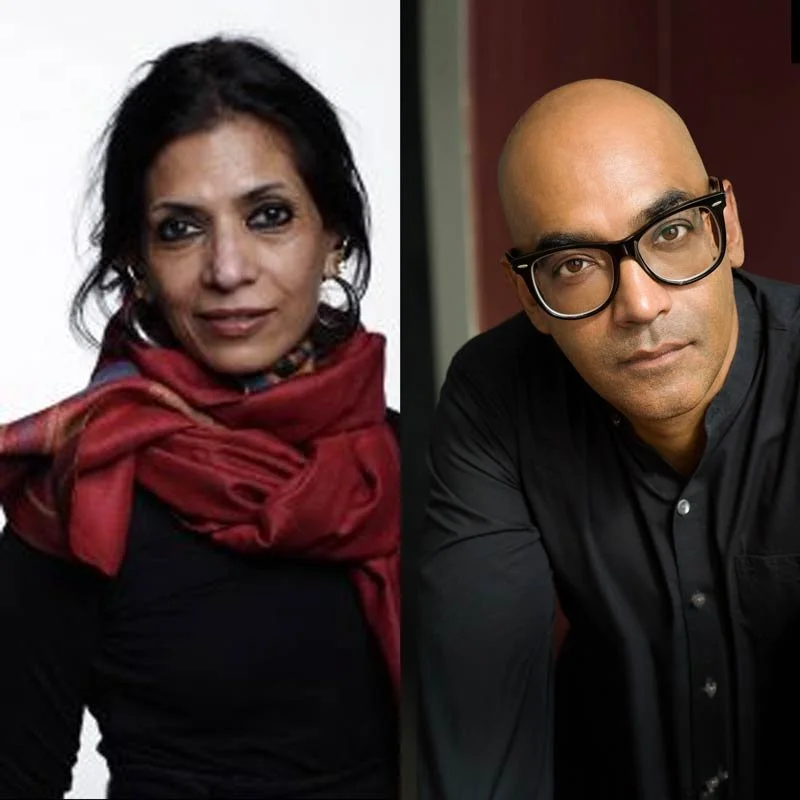David Auburn's plays include Proof (Pulitzer Prize, Tony Award®, New York Drama Critics Circle Award), An Upset and Amateurs (EST Marathons) and Skyscraper. Films include The Girl in the Park (writer/director) and The Lake House. Recent directing credits include A Delicate Balance for BTF. His short plays have been collected in the volume “Fifth Planet and Other Plays” (DPS). His work has been published in Harper’s, New England Review, and Guilt and Pleasure; and he was a contributing editor to the Oxford American Writers Thesaurus. A former Guggenheim Fellow, he lives in New York City.
DAVID AUBURN
I think the big thing writing for the theater has given me is the awareness that it's possible to inhabit another person's subjectivity fully enough to give voice to a set of experiences that aren't your own and you can do that in a way that gives solace and interests people who don't know how much you're "faking it". And there's sort of endless reassurance in that. Hopefully, we all to some extent have a capacity to imagine ourselves into the lives of other people and to express that in a way that is useful and meaningful. We're not all totally locked into our own subjectivities. It's possible to escape from it. It's possible to step outside of it. That's what writers and actors do for sure, so that seems important to me somehow that we're all capable of those kinds of acts of imagination that can bring us closer to the subjectivity of other people.
THE CREATIVE PROCESS
You have also done a number of very short plays. I think it's great to think about small works because I think everyone is always looking for this kind of big idea. And it needs to be put together as a series of scenes, a series of lines. It's important to think on that humble level so that each line is believable, not just this whole big idea.
AUBURN
Yeah, and you find over and over that no matter how ambitious your play is you end up asking the same questions when you're in rehearsal and when you're writing about–Who is the protagonist of this play and what are they trying to accomplish? And what are they trying to accomplish? What are they trying to accomplish in each scene? With each line what is it that they're trying to achieve when they speak? And you ask those questions for each character in the play. If you answer them well you have a play.
THE CREATIVE PROCESS
So that's what you got from your background acting, I guess. And what other aspects were so important for you when you became a playwright?
AUBURN
I think the other big thing that you start to think about is how is an audience taking in information? And what kind of information do they need? And in what order in order for you to take them on the journey that you're trying to take them on? And of course, there isn't one answer to that, but hopefully there's a way to learn to listen to what an audience is telling you in their reception of a play so that you can shape the experience you're giving to them in such a way that they're willing to go along with you.
An example might be the question of what I think an audience wants to know very early on in a play or scene when they can go home. You know what I mean. Nearly all successful plays no matter how abstract they are, no matter how bleak they are, in some way tell the audience what is at stake in the story very early on so that you have the sum of expectations about what you are waiting to see happen. Figuring out how to do that and how to do it artfully and in a way that isn't obvious is tricky and is a continuous challenge with every new piece, but every play does it in some way, I think. Every successful play.
This is an excerpt of a 7,000 word interview which will be published and podcasted across a network of participating university journals and national arts/literary magazines.
This interview was conducted by Mia Funk with the participation of collaborating universities and students. Associate Interviews Producer on this podcast was Elana Klein. Digital Media Coordinator is Yu Young Lee. “Winter Time” was composed by Nikolas Anadolis* and performed by the Athenian Trio.
Mia Funk is an artist, interviewer and founder of The Creative Process.




















































